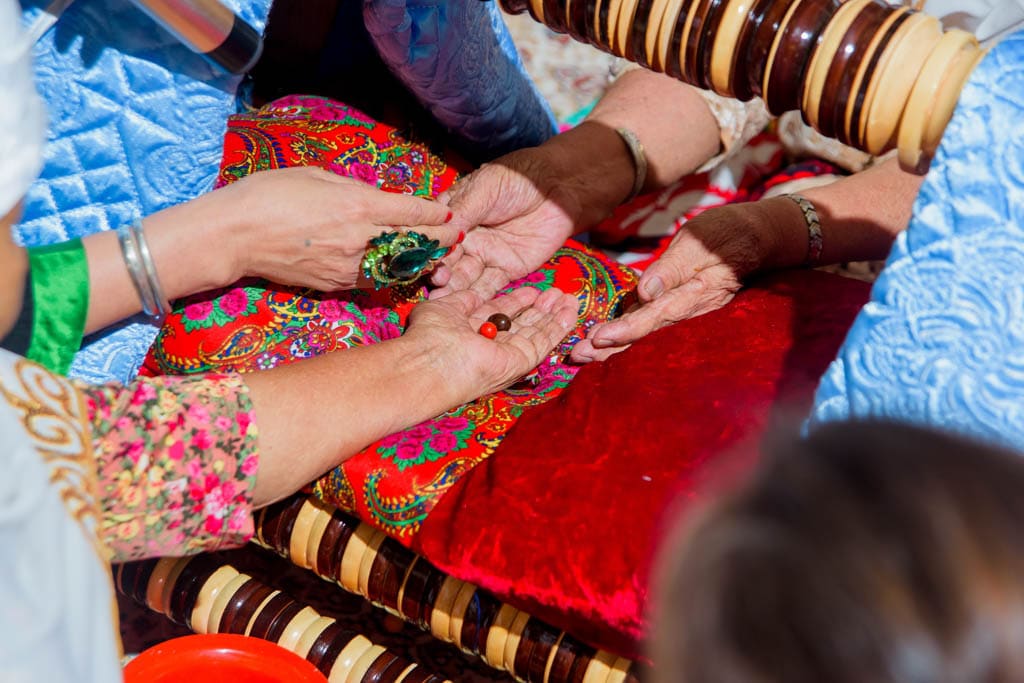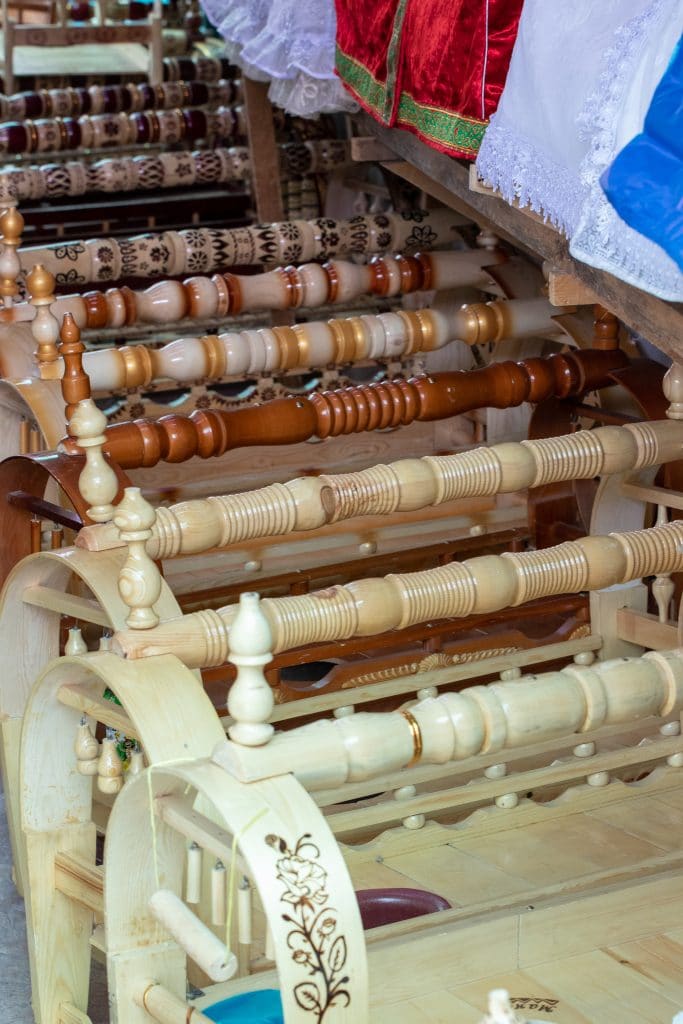Kyrgyz childbirth traditions
Kyrgyz Childbirth
Every culture has different customs and rituals to welcome the birth of a child and Kyrgyzstan is no exception. A child in a Kyrgyz family is considered someone who will continue the clan line and its traditions and at the same time a symbol of the immortality of the people. Therefore, the birth of a child is considered the most important and joyful event in the life of the family and the clan.
Pregnancy related traditions in Kyrgyzstan
According to ancient traditions, before childbirth, pregnant women were protected from all sorts of domestic worries and disturbances to ensure the safety of the birth of the newcomer. When Kyrgyz people still believed more (some still do) in the old religions, beliefs and superstitionsz, they often attached a “tumar” to the clothes of a pregnant woman, which is an amulet with notes from the Koran. Some old pagan charms were also used, such as the claws of a bear called “Ayuu tyrmagi” or the paws of an owl called “Ukunun tyrmag”.
Other ways to protect the unborn child from the evil included always having a fire burning, day and night, in the yurt of the pregnant woman with a knife laying on the ground, with its tip pointed towards the door and a gun on the wall of the yurt pointing towards the sky. All these simple acts were meant to drive away evil spirits and demons, from whatever side they approached.
Today, there are no more hanging guns in the yurt but there is still an active belief that pregnant women should not cut her hair during the pregnancy and to limit the usage of the chemical contained products.
Naming a Kyrgyz child

There is a belief that the name of the newborn should not be too “heavy”, or otherwise the child can not bear it. For instance, the name Manas is considered to be heavy – who was the name of the hero of the eponymous Kyrgyz epic.
If only boys or only girls are born in a family, they give the names Burul, Zhanyl, Kayrylsa, Toktobubu (“stop”, “turn”, “renew” or other words that mean change) so that children of the opposite sex would be born in the future. Names such as Toktosun, Toktogon, Toktogul (“stop”) are also given for a reason. They are given in newborn’s in families where miscarriages often occur or children die shortly after birth.
Nowadays many Kyrgyz families name their children according to Muslim traditions.
Suiunchu (Happy news)
“Suiunchu” is translated as “happy news.” As soon as a child is born, his family tells the happy news to all relatives and friends. For suyunchu, it is customary for the guests to give gifts or money to the parents.
Korunduk (Gifts for showing baby)
For the right to look at the baby, guests give a “Korunduk” which is normally cash or gifts that are usually given to the youngest member of the family.
The first 40 days of the baby
There is a custom to take a woman in labor and the newborn to the house of the grandmother for 40 days. The mother of the woman in labor teaches her how to care for the baby and looks after her until she recovers from giving birth. This usually happens nowadays only for the birth of the first child or after a childbirth with complications.
On the fortieth day, the child is washed by forty tablespoons of water, pouring every spoon of water separately while women bless the child. On the same day, they cut the child’s hair, which is also a special ritual and is trusted to be done by an esteemed male relative.
Beshik (Central Asian cradle)
Later, the baby is placed in the cradle called “Beshik”. By tradition, an elderly woman did this, asking the goddess Umai to give the newborn many years of life and health. Nowadays this custom is mainly followed only in the remote regions of Kyrgyzstan. The cradle has a special hole at the bottom to allow the pee fall out from the bottom with a different tube designed for each gender.

Jentek Toi
Jentek toi (Birth Feast) is a celebration arranged in honor of the birth of a child. In modern society, this type of toy (party) is combined with the “Beshik Toy” a cradle celebration. At the feast, guests give a blessing to the baby and wish him/her a happy future. During the celebration, the maternal grandmother of the child brings Sary May (ghee) and other goodies and treats to all the guests. Nowadays, the celebrations are mainly held in cafes and restaurants.
Tushoo Kesuu
During Tushoo Kesuu, the legs of the children from neighbors and relatives are tied with black and white rope. Afterwards, they start a running contest with tied legs. The winner should then cut the bonds with a knife. For this, the child is given a gift and in addition the knife with which was used cut the ropes. Other runners are also presented with lesser gifts.
Runs are sometimes also arranged among adults by age categories. The purpose of the ceremony is to point out that all roads will open before the child. During the celebration there are sweets spread all around by guests and children collect them. This ritual is often conducted when a child begins to walk, usually around the first birthday
Circumcision in Kyrgyzstan
Circumcision is one of the oldest Kyrgyz Muslim traditions. When a boy turns three, five or seven, he will most likely go thought this custom. According to Islamic rules, the age of a boy should be an odd number during the procedure. This custom is supposed to be a sacred duty because a boy transits from one age condition to another.
Today there is a service in the hospitals, where parents take the kid for the circumcision and return then home where parents and relatives celebrate the occasion. The guests usually come to see a boy and give him either money or presents. Depending on the material condition of the family, some conduct “Sunnet Toi” (the circumcision ritual) modestly and another with a large celebration.
More about Kyrgyz Culture
Page updated 4.3.2023